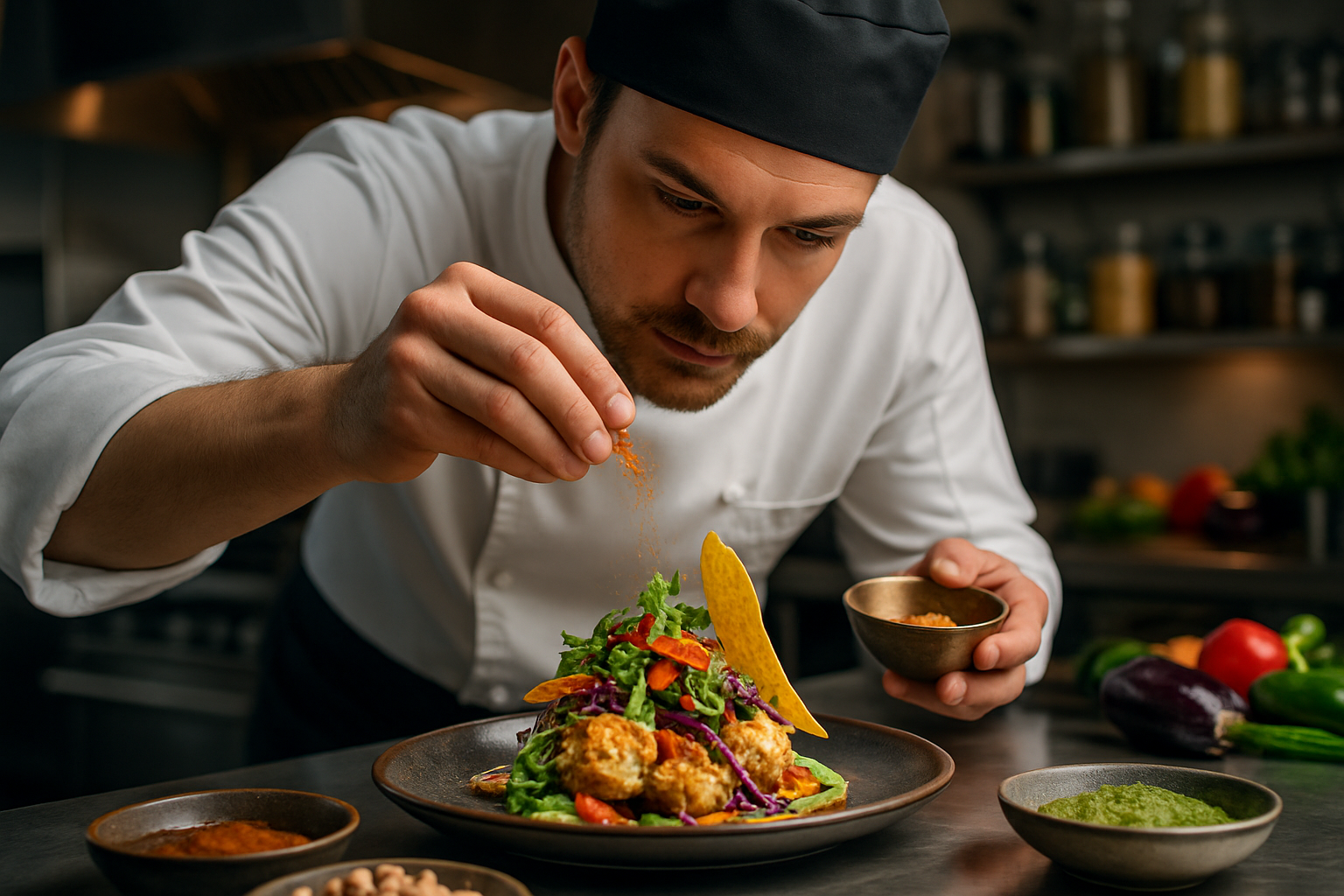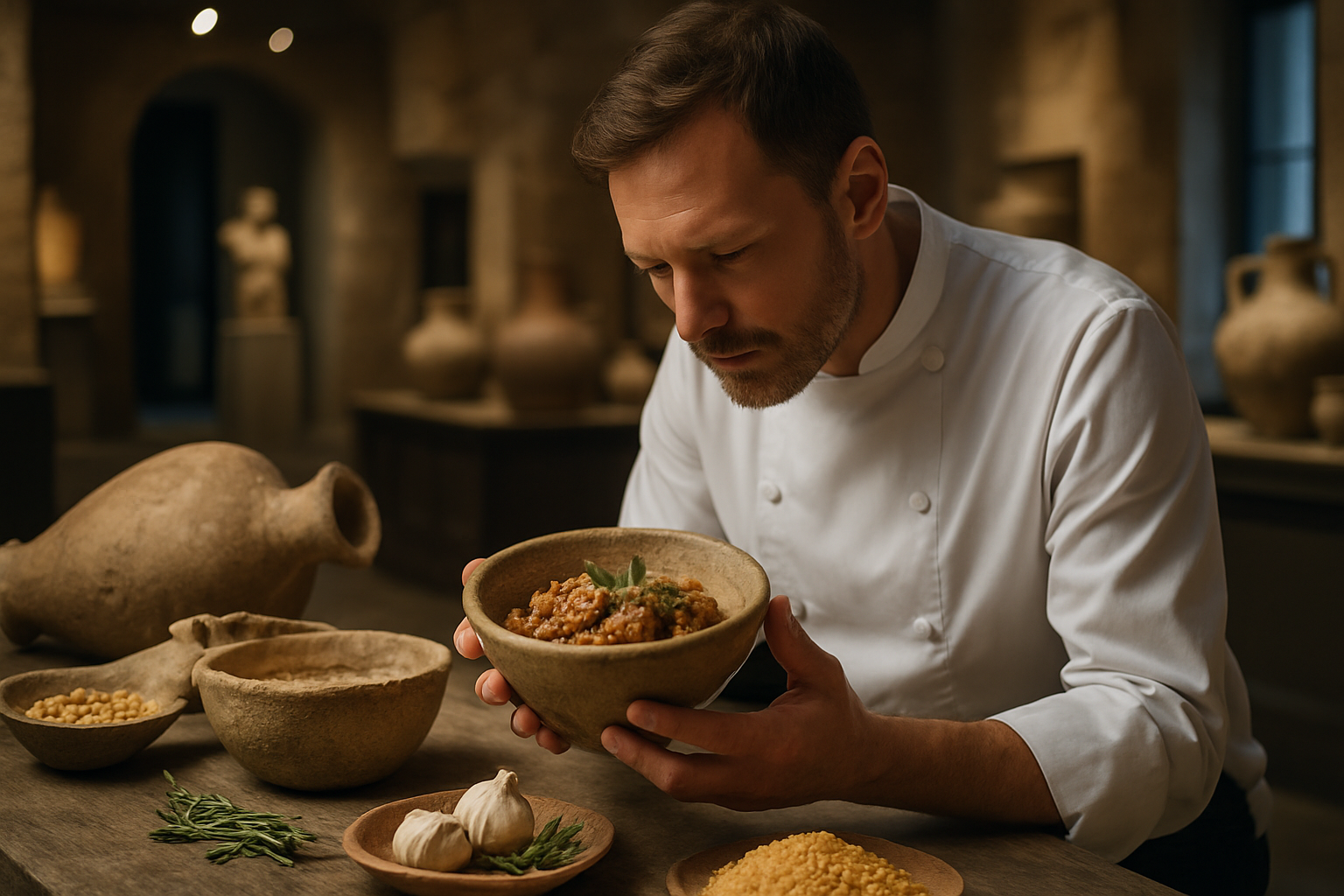Culinary Alchemy: Transforming Humble Ingredients into Gourmet Delights
Unlock the secrets of culinary wizardry as we explore the art of elevating everyday ingredients into extraordinary dishes. From simple pantry staples to overlooked produce, discover how creativity and technique can transform the ordinary into the sublime. Get ready to embark on a flavorful journey that will revolutionize your approach to cooking.

Vegetable Virtuosity
Vegetables often play second fiddle in many dishes, but with a little ingenuity, they can take center stage. Cauliflower, once boiled into bland submission, becomes a culinary canvas when roasted whole and adorned with spices, herbs, and a drizzle of tahini sauce. Transform carrots into a stunning main course by slow-roasting them with honey and harissa, then serving atop a bed of whipped feta. Even the humble potato can be elevated beyond its comfort food status – try hasselback potatoes with garlic-herb butter or twice-baked potatoes stuffed with truffle-scented mushrooms and Gruyère cheese. By treating vegetables with the same reverence as premium proteins, you’ll discover a world of flavor and texture that will impress even the most discerning palates.
Fruits Beyond Dessert
While fruits are often associated with sweet treats, they have untapped potential in savory applications. Incorporate thinly sliced pears into a prosciutto and gorgonzola flatbread for a perfect balance of sweet and salty. Grill peaches and serve them alongside burrata and prosciutto for an elegant summer appetizer. Pomegranate seeds can add a burst of tart sweetness to Middle Eastern-inspired lamb dishes or sprinkled over roasted Brussels sprouts. Even citrus fruits can shine in savory preparations – try using orange segments in a fennel salad or incorporating grapefruit into a ceviche. By thinking beyond traditional fruit applications, you can add unexpected depth and complexity to your savory dishes.
Spice Cabinet Sorcery
A well-stocked spice cabinet is like a painter’s palette, offering endless possibilities for flavor creation. Experiment with blending your own spice mixes to elevate simple dishes – try a Moroccan-inspired ras el hanout on roasted chicken or a fragrant Indian garam masala sprinkled over lentil soup. Toasting whole spices before grinding them releases their essential oils, intensifying their flavors and aromas. Create your own flavored salts by blending sea salt with dried herbs, citrus zest, or even dried mushrooms for an umami boost. Even familiar spices can be used in unexpected ways – try adding a pinch of cinnamon to tomato-based sauces or a dash of cardamom to chocolate desserts. With a little experimentation, your spice cabinet can become the secret weapon in your culinary arsenal.
Sauce Sensations
A well-crafted sauce can elevate even the simplest ingredients to gourmet status. Master the five mother sauces of French cuisine – béchamel, velouté, espagnole, hollandaise, and tomato – and you’ll have a solid foundation for countless variations. Experiment with global flavors by creating a tangy chimichurri for grilled meats, a rich mole for Mexican-inspired dishes, or a vibrant salsa verde to brighten up fish or vegetables. Don’t overlook the power of compound butters – mix softened butter with herbs, spices, or even anchovy paste for an instant flavor boost to steaks, seafood, or vegetables. By focusing on sauce creation, you can transform everyday ingredients into restaurant-worthy meals with minimal effort.
Culinary Alchemy Tips & Facts
• Toast nuts and seeds before using them to enhance their flavor and aroma.
• Use acid (lemon juice, vinegar) to brighten and balance rich dishes.
• Incorporate umami-rich ingredients like miso, soy sauce, or nutritional yeast for depth.
• Experiment with different cooking methods (roasting, grilling, braising) to transform textures.
• Learn proper knife skills to elevate the presentation of your dishes.
• Use fresh herbs as a garnish to add color, flavor, and visual appeal.
• Invest in a few high-quality ingredients (like extra virgin olive oil or aged balsamic vinegar) for finishing touches.
In conclusion, culinary alchemy is about seeing the potential in everyday ingredients and transforming them through creativity, technique, and passion. By mastering these principles, you can turn even the most humble components into extraordinary culinary experiences. Remember, great cooking is as much about imagination as it is about skill – so let your creativity soar and discover the magic that awaits in your kitchen.





